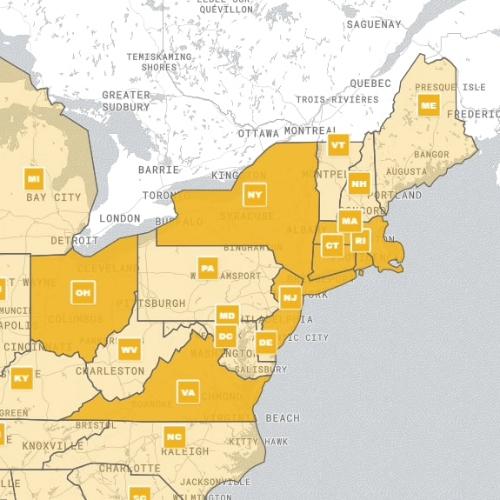The Effect of State & Local Laws on Evictions
A congressionally directed study examining how state and local laws, court processes, and access to legal help affect eviction outcomes and housing stability.
Understanding the Impact of State and Local Laws on Evictions
Stable housing supports strong communities, local economies and public safety. When eviction is the first or only option in a housing dispute, families, property owners, courts and public systems all bear the cost. Early legal intervention, eviction diversion programs and fair enforcement of landlord-tenant laws can help resolve disputes before they escalate — reducing litigation, preserving housing stability and saving taxpayer dollars.
Through this initiative, the Legal Services Corporation (LSC) explores how state and local laws shape eviction outcomes and how legal aid contributes to more efficient, cost-effective solutions. By promoting early resolution and connecting people with legal help, leaders can strengthen communities, improve outcomes for both landlords and tenants and advance solutions grounded in data, fairness and fiscal responsibility.

Eviction Laws Database
As part of The Effect of State & Local Laws on Evictions study, LSC partnered with the Center for Public Health Law Research at Temple University to examine how eviction laws and procedures differ across states and territories—and what those differences mean for tenants, landlords and communities.
The result is the Eviction Laws Database, an interactive tool that allows users to explore every stage of the legal eviction process.

Insights from the Eviction Study
-
Beyond Eviction: Landlords and Property Managers as Essential Partners in Housing Stability
-
Leveling the Playing Field: The Importance of the Right to Counsel in Eviction Proceedings
-
Cost to Provide Representation
-
Breaking Down Barriers: Promising Programs and Initiatives to Reduce Evictions
-
Effective Volunteer Partnerships: The Critical Role of Pro Bono
-
Fast & Cheap: The Speed and Cost of Evicting Tenants for Nonpayment of Rent
-
Eviction Court Data Analysis
-
On the Brink of Eviction
-
A Common Story: Shelby County, TN
Public discourse often characterizes landlords as adversarial – quick to pursue eviction after a missed payment and indifferent to tenants’ rights. However, landlords and the property managers they employ can play a central role in preventing and reducing the impact of eviction, particularly in low-income communities. Drawing on research, case examples and promising practices, this brief illustrates how collaboration with civil legal and other community partners helps landlords avoid eviction, preserve rental income and strengthen their communities in the process.
Explores the growing movement to guarantee tenants the right to legal representation in eviction cases, highlighting early evidence that right to counsel (RTC) initiatives reduce displacement, improve court efficiency and generate economic savings. The brief also underscores the critical role of legal aid and community organizations in designing, delivering and sustaining effective RTC programs.
This memo presents a national estimate of $2,000–$2,500 per case to provide legal representation to low-income tenants facing eviction. Evidence demonstrates that investing in legal defense not only improves housing outcomes but also generates meaningful savings for public systems, including healthcare, education and emergency services.
This brief highlights innovative programs developed during the COVID-19 pandemic that reduced evictions. From eviction diversion and rental assistance to centralized intake, legal tech and volunteer mobilization, these initiatives demonstrate how collaboration, creativity and community partnerships can keep tenants housed and keep landlords whole.
Highlighting model practices for pro bono eviction defense programs, this brief explores how legal aid organizations can effectively engage volunteers to expand access to eviction-related legal services. Drawing on case studies from across the country, it outlines strategies to support and retain volunteers while meeting the urgent legal needs of tenants facing eviction.
This brief analyzes state eviction laws and reveals how the low cost and speed of eviction filings can make it easier for landlords to initiate proceedings.
This data also outlines the challenges and strategies involved in collecting, standardizing and analyzing eviction court records across the U.S. It highlights major barriers to access, such as inconsistent data availability and documentation, and showcases promising practices that can improve data quality and support more informed policymaking.
This brief analyzes eviction filing trends during the COVID-19 pandemic, showing how state and federal moratoria impacted eviction activity across five counties. The findings reveal that moratoria that halted filings — not just judgments — reducing eviction risk and preventing long-term harm to renters.
Like many jurisdictions, the eviction process in Shelby County, Tennessee is complex and fast-moving. Using Shelby County as a case study, this brief highlights barriers tenants face — from limited legal protections to inaccessible appeal options — and underscores the need for legal representation.

Contact Us
For additional information or questions about this research, please contact the Office of Data Governance and Analysis at datateam@lsc.gov.

